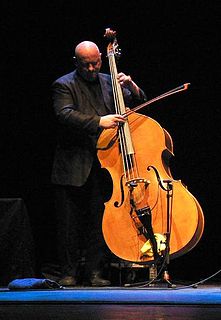Top 26 Quotes & Sayings by Gavin Bryars
Explore popular quotes and sayings by an English composer Gavin Bryars.
Last updated on April 18, 2025.
The virtuoso element in jazz playing, all those very fast runs in the upper extremes, simply doesn't appeal to me. That's why I don't want to make my concerto "virtuosic" in the sense of a technical show-off. I want a beautiful sound and a melodic and lyrical line. I am more interested in the way someone can play musically.
























